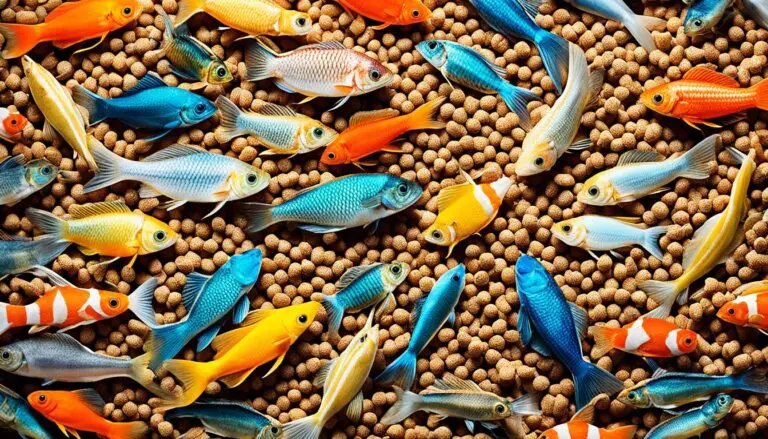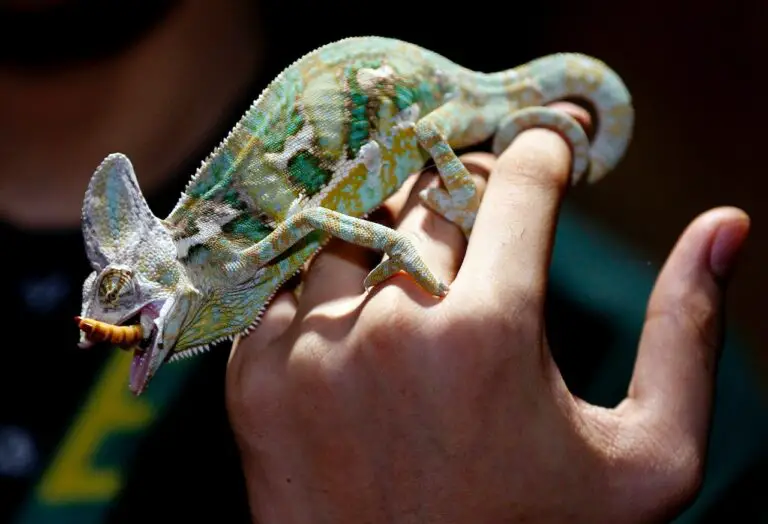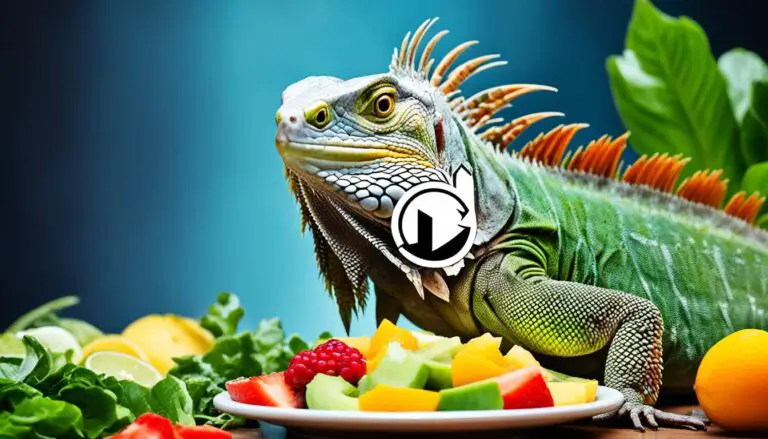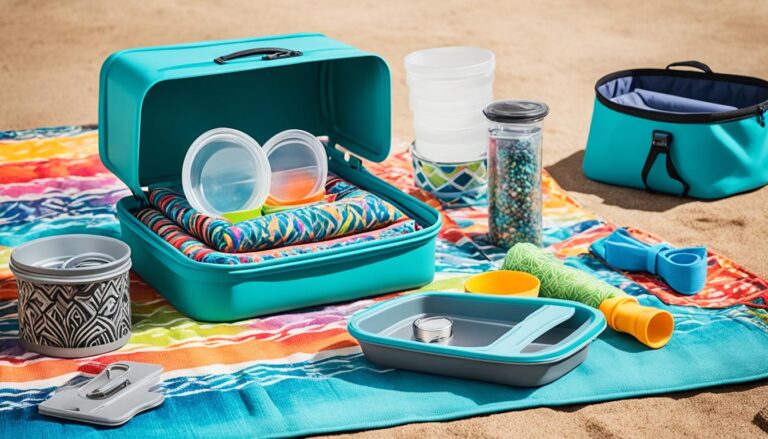Exotic Pet Dental Health: Nutritional Management
Did you know that dental disease is very common in exotic pets?
Dental problems aren’t just for dogs and cats. It’s vital to also think about this for exotic pets. Their unique dietary needs are key for keeping their teeth and gums healthy.
The right food can prevent dental problems. It stops things like tartar and gum disease. Proper nutrition also fights tooth root infections in these special pets.
Key Takeaways:
- Nutritional management is essential for promoting dental health in exotic pets.
- The right diet can help prevent dental issues such as tartar build-up and periodontal disease.
- Dental health is just as important for exotic pets as it is for dogs and cats.
- Proper nutrition can contribute to preventing tooth root infections in exotic pets.
- Regular dental check-ups and professional cleanings are crucial for exotic pet dental health.
The Importance of Dental Care in Exotic Pets
Exotic pets need proper dental care, just like dogs and cats do. Not taking care of their teeth can cause gum disease and tooth loss. For exotic pets to stay healthy, their oral health is key.
The Impact of Dental Disease
Preventing dental disease in exotic pets is very important. Dental problems can cause pain and infections. Pet owners can keep their exotic pets happy and healthy by focusing on their teeth.
“Just like with any pet, preventive measures and regular dental care are key. Being aware of the importance of dental care can make a significant difference in the well-being of exotic pets.”
Promoting good dental care for exotic pets means regularly checking their teeth and cleaning them. These checks can spot any issues early. Cleanings remove tartar, which can cause dental disease, and prevent infections.
The oral health of exotic pets is directly linked to their overall health. Good dental care helps with digestion and makes sure they get the right nutrients.
Proactive Dental Hygiene
Keeping exotic pets’ teeth healthy can be simple. Daily tooth brushing, special toys, and good food all help keep their teeth clean.
Start by brushing your pet’s teeth with the right tools. This stops plaque and tartar from building up and keeps teeth healthy. It’s also important to make sure your pet enjoys tooth brushing by being patient and using rewards.
- Provide a balanced diet: What your exotic pet eats affects their teeth. A diet made for dental health can control tartar and keep their mouths healthy.
- Offer dental-specific toys and treats: Pets love to chew, and chewing can clean their teeth. Toys and treats made for dental health are great for this.
Making these steps part of your daily routine helps your exotic pet maintain good oral hygiene. This is a key step in avoiding dental issues.
The Role of Veterinary Care
Dental care from a vet is critical for exotic pets. Vets can check their teeth, clean them, and look for problems. This ensures any dental issues are caught early and treated quickly.
| Dental Care for Exotic Pets | Benefits |
|---|---|
| Regular dental examinations | Early detection of dental issues |
| Dental cleanings | Removal of tartar and prevention of dental disease |
| Professional advice and treatment | Expert guidance on oral health |
Veterinary dentistry is important for exotic pets. Experts can handle the special dental needs of exotic animals. Regular dental care from a vet is the best way to protect your pet’s teeth and health.
Dental Issues in Ferrets and Bearded Dragon Lizards
Ferrets and bearded dragon lizards often have problems with their teeth. Ferrets chew on hard things, leading to cracked teeth. On the other hand, bearded dragon lizards get bacteria on their teeth, causing plaque and tartar. Fortunately, these issues can be fixed with proper care. This care includes regular tooth checks, cleaning, and sometimes pulling teeth out.
Ferret Dental Care
Life with ferrets means dealing with cracked teeth sometimes. Ferrets love to chew hard stuff, which is bad for their teeth. It’s better for them to chew on soft toys. This keeps their teeth strong. Vets should check their teeth often to stop any problems early.
Bearded Dragon Dental Care
Bearded dragon lizards face bacterial teeth problems. These lead to plaque and tartar. Good dental care for them means brushing their teeth with a special toothbrush and toothpaste. A good diet also helps. It should be full of crunchy, healthy foods that help clean their teeth.
“Proper dental care is essential for the well-being of ferrets and bearded dragon lizards. By addressing dental issues through regular examinations and appropriate treatments, owners can ensure their pets’ oral health and overall quality of life.”
| Exotic Pet | Dental Issue | Treatment |
|---|---|---|
| Ferrets | Cracked teeth | Tooth extraction and regular dental cleanings |
| Bearded Dragon Lizards | Plaque and tartar buildup | Regular tooth brushing and a balanced diet |
For exotic pets, dental health is very important. Regular cleanings and good home care keep teeth in top shape. Being mindful of dental problems and taking good care of their diet helps owners keep their pets’ teeth healthy.

Dental Care for Rabbits and Rodents
Rabbits and rodents need special dental care because their teeth keep growing. Without enough chewing, they can get sharp teeth or other problems. To help them, their teeth may need filing or even pulling out.
Understanding the unique needs of exotic pets’ teeth is key. Their teeth grow all their lives. That’s different from us and most animals.
These animals need to chew a lot to wear their teeth down. In the wild, they do this by eating grass and hay. But, it’s harder for them in our homes.
Pet owners have to watch out for their teeth. A vet should check their teeth regularly. This can catch problems early, before they get serious.
Proper Diet for Dental Health
A good diet helps keep rabbits and rodents’ teeth healthy. Eating the right foods helps their teeth wear naturally. The main part of their diet should be hay. It keeps their digestion healthy and grinds down their teeth.
Adding fresh veggies and a little fruit is good, too. These foods make them chew, which is good for their teeth. Always check with a vet to pick the best foods for your pets.
Chewing and Enrichment
For dental health, give them the right things to chew on. Toys made of safe wood are great for them. Not only do these toys keep them busy, but they also help with tooth wear.
But, avoid toys that could hurt them. Make sure their toys are safe by checking them often.
Veterinary Dental Care
It’s important to see a vet who knows about exotic pets’ teeth. They can do deep checks and fix problems early. Sometimes, they need to do dental surgery.
Regular vet visits are a must. They keep their teeth healthy and catch and treat problems fast.
Signs of Dental Problems in Pets
It’s important to spot dental problems in pets for their health. These issues can cause them pain and lower their life quality. Knowing the signs can help pet owners act fast and get their pet the care they need.
- Bad breath: A pet’s persistent bad breath is a common sign. Halitosis could mean they have gum disease or tooth decay.
- Red or swollen gums: A pet’s gums should be pink and firm. But if they are red, swollen, or bleed, it’s a sign of a problem.
- Difficulty eating or chewing: Pets might find chewing painful if they have dental issues. Signs can include dropping food or not wanting to eat.
- Pawing at the mouth: Pets in pain might paw at their mouth. This is a sign to look out for.
- Excessive drooling: Too much drool could show dental problems. It might be caused by pain from gum disease or tooth issues.
- Changes in behavior: Dental issues can make pets act differently. They might seem more irritable, agitated, or sad. Look for these changes in behavior.
If you see these signs in your pet, it’s time to visit the vet. A vet can do a full dental check-up. Early treatment helps prevent more issues and keeps your pet’s teeth healthy.

Professional Pet Dental Cleanings
Getting your pet’s teeth cleaned professionally is very important. Veterinarians do this to keep your pet’s mouth healthy. They remove tartar and plaque to stop dental problems and keep your pet feeling good.
This cleaning also includes a full check-up of your pet’s teeth. They look for signs of gum disease, cavities, or other trouble. X-rays help find hidden issues below the gumline.
Dental cleanings help find problems early. This stops issues from getting worse or causing serious health problems like tooth loss. Quick care makes pets feel better and live happier lives.
If your pet’s dental health is really bad, they might need extra care. This can include a process called root planing. It helps heal the teeth by removing bad bacteria. Sometimes, pets receive medicine to fight off infections or ease pain.
After the cleaning, your vet gives you tips on how to keep your pet’s teeth healthy. They often recommend regular check-ups. This helps avoid more dental problems and keeps your pet’s smile bright.
The Benefits of Professional Pet Dental Cleanings
These cleanings keep your pet’s mouth in the best shape. They:
- Prevent and treat gum disease
- Get rid of tartar and plaque
- Fight hidden dental issues
- Boost overall mouth health
- Lessen pain and discomfort
Focus on these cleanings to look after your pet. It helps them stay well and enjoy life.
The Cost of Professional Dental Cleanings
The price of a cleaning can change by where you are and what needs to be done. Talk to your vet about costs. They can also help you figure out insurance or payment plans.
Proactive Prevention for Pet Dental Care
Keeping a pet’s teeth healthy starts with being proactive. This means regular dental check-ups and cleanings. Sticking to a routine like this can stop dental problems and keep your pet’s mouth healthy.
Regular Dental Exams and Cleanings
It’s vital to set up regular dental check-ups for pets. The American Veterinary Medical Association says pets should have a detailed check-up at least every year. These check-ups help catch any dental issues early and clean your pet’s teeth well.
Did You Know? Dental care for pets is much like it is for people. The difference is, pets need anesthesia for a full and safe examination and cleaning.
Dental cleanings for pets focus on removing tartar and plaque. This includes cleaning above and below the gumline. Polishing the teeth after also decreases future plaque. Sometimes, X-rays are needed to check beneath the surface.
At-Home Dental Care
What you do at home is just as important as visits to the vet. There are several things pet owners can do for their pet’s teeth:
- Brushing pets’ teeth: Using a special toothbrush and toothpaste daily can keep teeth clean.
- Feeding dental diets: Specially made food can improve oral health. These foods work to remove plaque as pets eat.
- Providing dental chews: Special chews help control tartar and encourage chewing. Look for chews recommended by the Veterinary Oral Health Council (VOHC).
- Offering appropriate chew toys: Toys that are tough and meant for chewing can help. They scrape off plaque and support gum health.
A Complete Dental Care Routine
Fully caring for your pet’s teeth means doing a bit of everything. That includes regular check-ups, cleanings, and home care. This mix keeps their mouth healthy and fresh.
Think of dental care as an important part of your pet’s health plan. It’s something that pays off in their happiness and wellbeing.

Home Care for Your Pet’s Teeth
To keep your pet’s mouth healthy, you should do some care at home. You can help your pet’s teeth by following some simple steps every day. These steps will keep your pet’s smile bright and avoid dental problems in the future.
Feeding a Dental Diet
Choosing the right food is crucial for your pet’s dental health. Look for a special dental diet that keeps their teeth strong. These foods are made to fight off plaque and tartar. Ask your vet which dental diet suits your pet best.
Providing Dental Chews and Chew Toys
Give your pet dental chews and toys to chew on. These help clean their teeth by getting rid of plaque and tartar. Make sure to choose toys that are safe and fit for your pet’s size and breed.
Brushing Your Pet’s Teeth Daily
Brushing your pet’s teeth every day is very effective. Use a toothbrush and toothpaste made for animals. Gently brush their teeth to keep them clean. Make it a positive experience with praise and treats.
“Regular tooth brushing is the gold standard for at-home dental care and can significantly reduce the risk of dental disease in pets,” says Dr. Emily Johnson, a leading veterinarian in pet dentistry.
Professional Dental Care
But, regular visits to the vet are also key. Your vet should check your pet’s teeth once a year. They can do a deep clean and fix any problems. This cleaning removes tough plaque and tartar better than home cleaning alone.
Combine home care with vet cleanings for the best results. By spending a little time each day, you contribute greatly to your pet’s health. This way, you get to enjoy more happy years with your furry friend.
Dental Needs of Exotic Pets
Exotic pets need special dental care. They often have different teeth and diets from regular pets. It’s important to give them regular dental checkups and preventive care.
They also need the right chewing toys and a balanced diet. Taking care of their teeth and gums can improve their health and life span.
The Importance of Regular Dental Checkups
Regular dental checkups are key for exotic pets. These visits help find and fix dental issues early. Vets check the health of their teeth and gums, looking for diseases or problems.
Exotic pets might not show clear symptoms when they have dental trouble. Signs like not eating well, losing weight, drooling, or acting different can point to problems. But without checkups, you might not notice these signs.
Getting pets checked often helps keep their teeth in top shape. It allows owners to prevent issues before they get worse.
The Role of Preventive Care
Preventive care is vital for exotic pets’ dental health. It means taking steps to stop dental diseases and keep their mouth clean.
Giving exotic pets the right chewing toys can do a lot. These toys help clean their teeth, exercise their jaws, and stop tartar and plaque.
Brushing their teeth is important too. Using the right toothbrush and toothpaste, you can get rid of food and plaque. This lowers their risk of dental diseases.
A Balanced Diet for Dental Health
A good diet supports exotic pets’ dental health. They need a balanced meal to keep their teeth and gums strong.
Different types of exotic pets need different foods. For rabbits and guinea pigs, a diet with hay and veggies is best. This helps keep their teeth at the right length.
For pets like reptiles and some birds, the diet should match their dental needs. Always check with a vet to ensure your pet’s diet is right.
| Exotic Pet | Recommended Dental Diet |
|---|---|
| Rabbits | A diet rich in high-quality hay, fresh vegetables, and limited pelleted rabbit food |
| Bearded Dragons | A diet consisting of commercially available reptile food supplemented with fresh vegetables and occasional insects |
| Ferrets | A high-protein diet with limited carbohydrates and high-quality meat-based cat food |
A balanced diet is important for exotic pets. It keeps their teeth and body healthy.
Dental care is crucial for exotic pets’ happiness and health. With the right checkups, care, and diet, you can keep their teeth and gums healthy long-term. A little care now can make a big difference later on.
Maintaining Your Pet’s Dental Health
Looking after your pet’s teeth is key. Make sure you schedule regular dental checkups and use preventive care. These steps will help keep your pet happy and healthy.
- Schedule annual dental checkups: Pets need their teeth checked just like we do. These checkups let the vet look at your pet’s mouth. They can find and treat any problems.
- Follow a proper oral hygiene routine at home: Taking care of your pet’s teeth each day is really important. Use special toothbrushes and toothpaste for pets. This stops plaque from building up.
- Provide appropriate dental care products and toys: There are lots of products that can help keep your pet’s mouth clean. This includes water additives and special chew toys. Chewing on the right toys can help keep your pet’s teeth strong and gums healthy.
- Address signs of dental problems promptly: Watch for signs like bad breath or not eating well. If you see these, talk to your vet right away. They can check your pet’s mouth and give any needed treatment.
“Taking care of your pet’s teeth is crucial. By looking after their dental health, you’re helping them feel their best and live longer.”
Following these tips will keep your pet’s teeth in good shape. A healthy mouth means a happy pet. So, make dental care a part of your daily routine.
Beware of Dental Disease:
Pets can suffer from dental disease, which impacts their health. By age three, more than 80% of dogs and cats have dental issues. It’s vital to start caring for their teeth early.
Creating a solid dental health plan is key. This should include regular checkups, cleanings, and daily care at home. These practices will keep your pet’s breath fresh and their life healthier.
Conclusion
Paying attention to dental health in exotic pets is vital. This includes nutritional management and visits to the vet. These steps help prevent dental issues and keep the pets healthy. By acting now, you can save your pets from future dental problems.

This article has underlined how important diet is for exotic pet dental health. The right food stops problems like tartar and gum disease. It also keeps your exotic pets feeling good. Remember, going to the vet for check-ups and cleanings is key. They can spot dental issues early.
To find the best diet for your exotic pet, talk to your vet. They will give you a diet plan that’s just right for your pet’s teeth. A balanced diet is crucial for keeping their mouths healthy.
Key Takeaways:
- Good nutrition and regular vet visits are crucial for exotic pets’ dental health.
- Knowing what your exotic pet’s teeth need is the first step in caring for them.
- Regular teeth cleanings and at-home routine care can stop dental problems before they start.
To wrap up, focusing on your exotic pet’s dental health is very important. Listening to your vet’s advice can help keep your pet’s teeth in great shape. Healthy teeth mean a happier and healthier life for your pet.
| Section | Description |
|---|---|
| Section 1 | Exotic Pet Dental Health: Nutritional Management |
| Section 2 | The Importance of Dental Care in Exotic Pets |
| Section 3 | Dental Issues in Ferrets and Bearded Dragon Lizards |
| Section 4 | Dental Care for Rabbits and Rodents |
| Section 5 | Signs of Dental Problems in Pets |
| Section 6 | Professional Pet Dental Cleanings |
| Section 7 | Proactive Prevention for Pet Dental Care |
| Section 8 | Home Care for Your Pet’s Teeth |
| Section 9 | Dental Needs of Exotic Pets |
| Section 10 | Maintaining Your Pet’s Dental Health |
| Section 11 | Conclusion |
| Section 12 | Acknowledgments |
Acknowledgments
We want to thank All Animal Veterinary Services for their help with this article. Their advice on pet dental care was key. It helped us understand and meet the unique dental needs of exotic pets.
Thank you, also, to the sources cited here. They gave us important info on preventing dental issues in pets. And on how to manage these issues in exotic pets. Their work made our article better.
XYZ Magazine is all about promoting pet dental care. We also aim to keep all pets healthy and happy. Thanks to our readers, who care for their pets so well. Together, we can make sure all pets get great dental care. This stops dental problems and boosts their life quality.
FAQ
How can proper nutrition benefit the dental health of exotic pets?
Do exotic pets require dental care like dogs and cats?
Which exotic pets are prone to dental issues?
How do dental needs differ for rabbits and rodents?
What are the signs of dental problems in pets?
How can professional dental cleanings benefit pets?
What can pet owners do to prevent dental issues?
How can pet owners take care of their pet’s teeth at home?
Do exotic pets have unique dental needs?
How can I maintain my pet’s dental health?
Source Links
- https://allanimalveterinaryservices.com/healthy-barks-whiskers-a-comprehensive-guide-to-proactive-dental-care-for-pets/
- https://avianexoticsvet.com/blog/a-guide-to-dental-care-for-exotic-pets/
- https://birdsandexotics.com/dental-care/
Peter Stones is the founder of Exotic Pets Place, the leading online resource for exotic pet care information.
With over 10 years of hands-on exotic pet ownership experience, he is deeply passionate about sharing his expertise to help others properly care for their unusual pets.
When he's not writing extensively researched articles or connecting with fellow exotic pet enthusiasts worldwide, you can find Peter at home tending to his own beloved menagerie of exotic animals.







